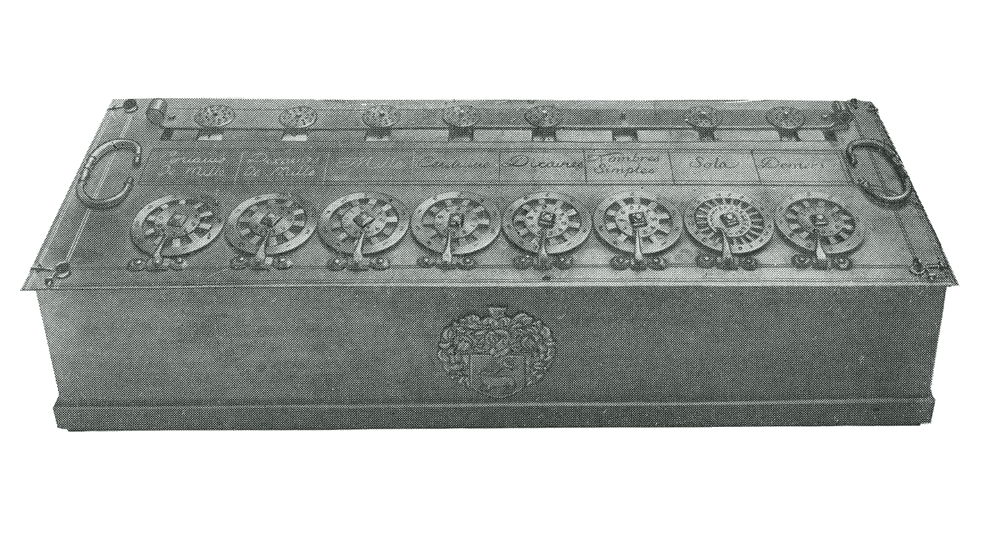What is a Pascaline?
Last Updated:
The Pascaline is a mechanical calculator designed by French mathematician and philosopher Blaise Pascal in 1642. Considered one of the first mechanical calculators in history, it was developed to facilitate arithmetic operations, notably addition and subtraction.
At the age of 19, Blaise Pascal set about creating the Pascaline to help his father, Étienne Pascal, who was a tax commissioner in Normandy. Tax calculations were tedious and error-prone, so the need for a device capable of simplifying these operations was obvious. The Pascaline was born of this need to automate arithmetic calculations.
The Pascaline takes the form of a rectangular brass case, about the size of a modern computer keyboard. It consists of toothed wheels, each representing a number from 0 to 9. The operating principle is based on an automatic carry-over mechanism: when one wheel completes a full revolution (from 9 to 0), it drives the neighboring wheel, enabling carry-overs during addition and subtraction operations.
Although the Pascaline was a major innovation, its artisanal manufacture and high cost limited its spread. Around twenty machines were built, mainly for use by scientists and accountants. Despite these limitations, the Pascaline laid the foundations for the later development of calculating machines.
The creation of the Pascaline marked a turning point in the history of computing. It inspired many inventors and paved the way for more sophisticated devices, such as the Leibniz machine and, later, electronic calculators. Today, several examples of the Pascaline are preserved in museums, testifying to Blaise Pascal’s ingenuity and his important contribution to science and technology.
The Pascaline is a pioneering invention that illustrates Blaise Pascal’s spirit of innovation. Designed to automate arithmetic calculations, it not only met a practical need of its time, but also influenced the development of computer technologies for centuries to come.
sciences

What is a Pascaline?
Answer
The Pascaline is a mechanical calculator invented in 1642 by Blaise Pascal to help his father, a tax collector, perform addition and subtraction calculations.